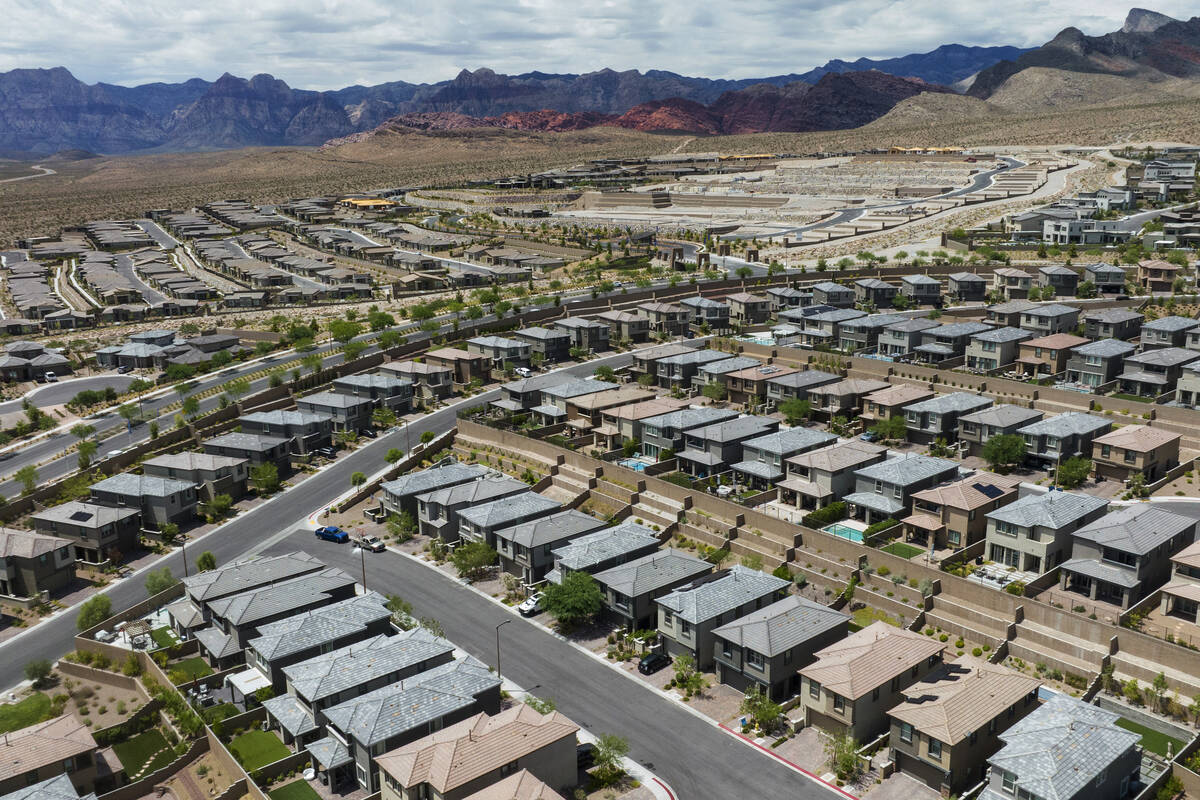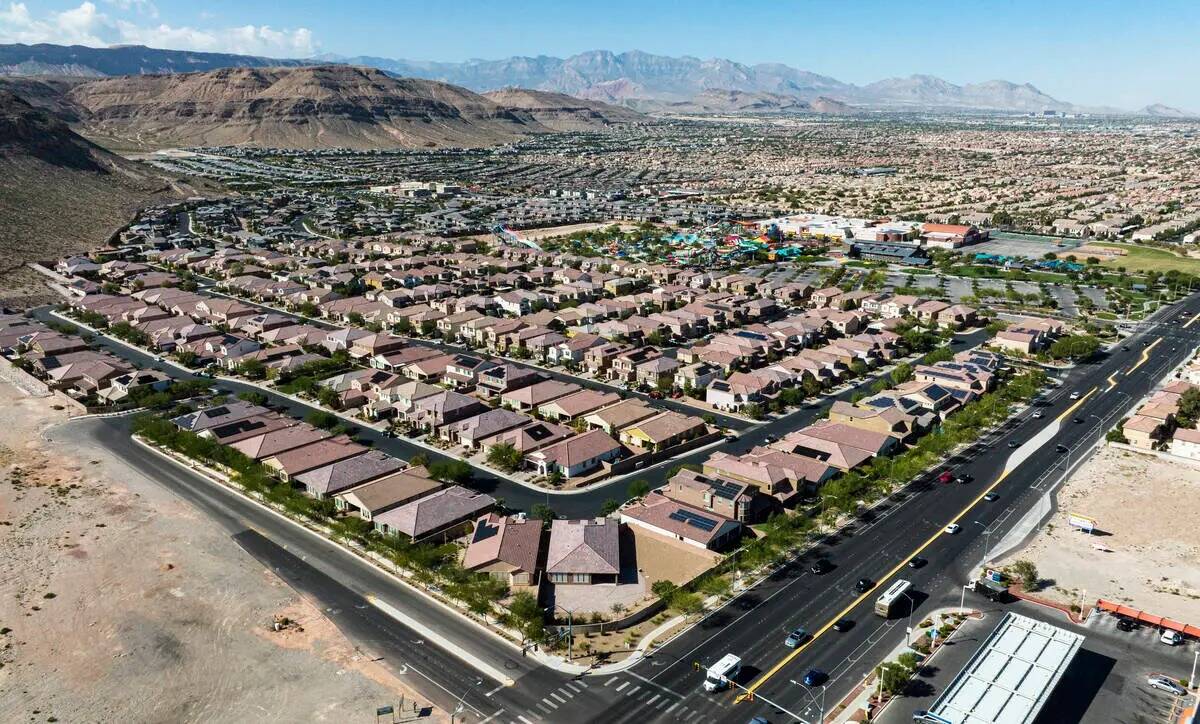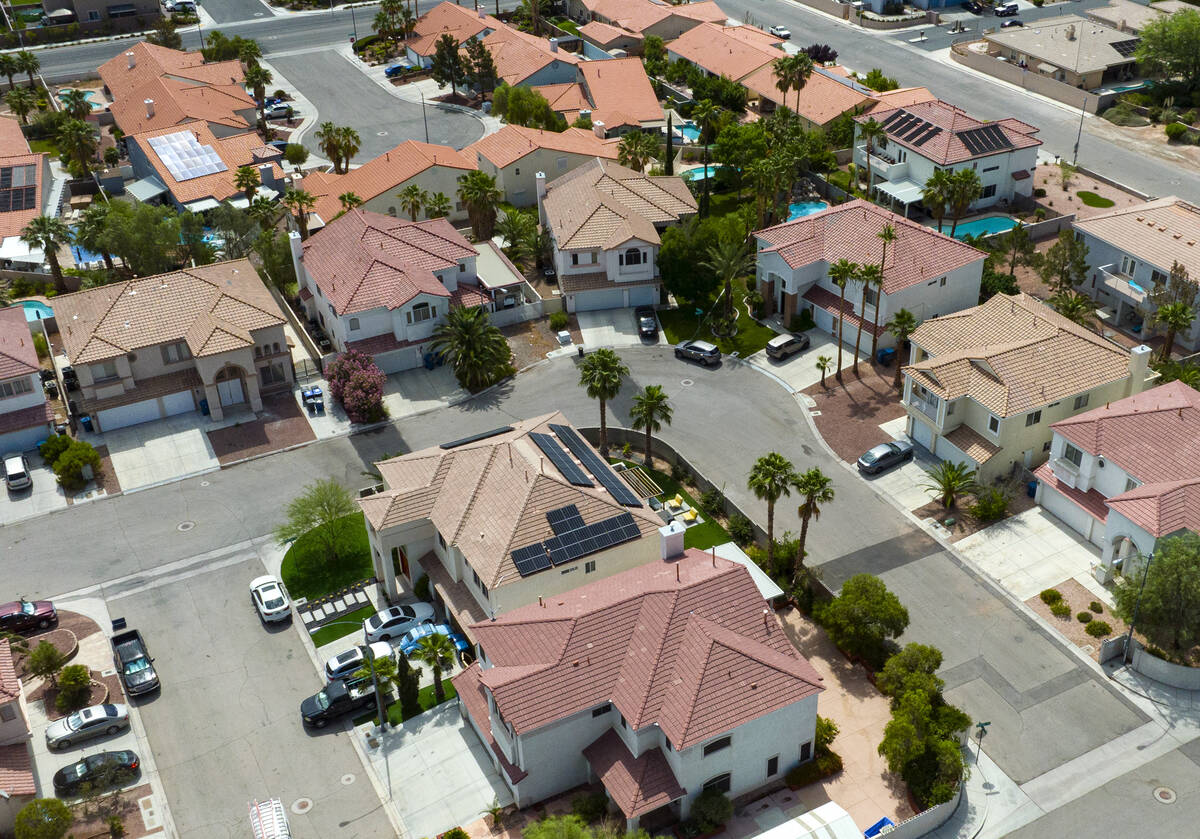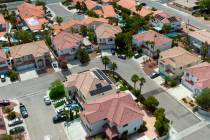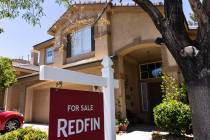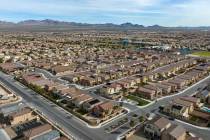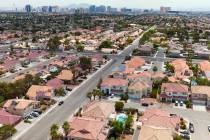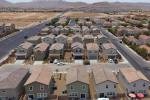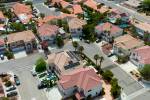‘Supply as low as it gets’: Where is Las Vegas’ real estate industry going in 2024?
All eyes will be on the Federal Reserve in gauging where Las Vegas Valley’s real estate market could head next year, area real estate agents said.
“We still have very low inventory, and the Federal Reserve said they plan to cut interest rates three times in 2024,” said Mike Roland, who runs the Roland Team at Platinum Real Estate in Henderson. “It sounds like these cuts will start in the second quarter and extend into 2025.”
Lee Barrett, president of Las Vegas Realtors, said he does expect the overnight federal funds rate — which sits at 5.25 to 5.5 percent — to drop next year, but it will not get back to 4.1 percent, where it was at in December 2022. As of Dec. 19, the average rate for a 30-year fixed-rate mortgage was 7.2 percent.
“This is going to be the new norm, higher interest rates and higher mortgage rates,” Barrett said. “They may drop, for the election a little bit, but I think 6.5 or 7 percent is where they are going to range next year.”
The Las Vegas Valley real estate industry is set to have its worst year for sales since 2008, and local real estate agents who spoke to Las Vegas Review-Journal said they are uncertain as to where the market is headed in 2024. Online real estate brokerage Redfin said that “signs point to a shift towards a buyer’s market in 2024 as pandemic-driven inflation takes its last gasps, mortgage rates come down and more people list their homes for sale.”
But the valley is plagued by a lack of inventory and affordable housing in the post-pandemic real estate market, as many homeowners who bought with low interest rates during the pandemic when the Fed slashed rates are refusing to sell their homes because of higher mortgage costs. Sales have dropped considerably every month this year, but home sellers are refusing to drop prices, creating a locking phenomenon in the local market.
Nationally, Redfin estimates home prices will drop 1 percent in the second and third quarters of 2024, the first time home prices have declined since 2012 when the housing market was still recovering from the Great Recession. The company also estimates a rise in new listings as rates decrease and a 5 percent increase in home sales.
Big election year
Home prices across the U.S. have risen 20 percent since President Joe Biden took office in 2020, according to Redfin, and a recent poll found 65 percent of voters disapprove of the president’s handling of the overall economy, with housing affordability a major factor. The average homebuyer in the U.S., according to Redfin, needs to make approximately $109,868 to afford a mortgage payment now, an all-time high, and many pundits believe housing could become a key issue in the 2024 presidential election.
Redfin senior economist Elijah de la Campa called the U.S. housing climate “a perfect storm of inflation, high prices, soaring mortgage rates and low housing supply,” making 2023 the least affordable housing market in years.
Barrett said there is one thing he is keeping his eye on when it comes to the local market for forecasting signs in 2024.
“What I always look at is the amount of product we have on the market, how many months of inventory do we have and are we shifting from a seller’s market to a buyer’s market? And based on what I have seen, that does not seem to be happening, and if we still have low inventory, it will keep our home values up.”
Barrett said six months of supply of homes for sale is an ideal target but said Southern Nevada has been hovering between one and five months since 2016. As of the end of November, there was just under three months of supply of properties for sale.
Southern Nevada real estate figures for November show the housing supply continues to shrink as well, with fewer homes selling and prices higher than the same time last year.
Multiple Listing Service data shows the median price of an existing single-family home sold in Southern Nevada in November was $450,000, a 4.4 percent increase from $430,990 in November 2022. Local home prices still remain below the all-time record high of $482,00o, a mark that was set in May 2022.
Barrett said this is the name of the game for real estate in Southern Nevada this year: The market has stalled, and prices won’t budge.
“Interest rates are higher now than in past years, and our housing supply is about as low as it gets.”
What gives?
Roland said there are other potential scenarios that could play out in 2024, that the Federal Reserve holds rates steady for longer as a wait-and-see approach to inflation, or the bottom falls out on the U.S. economy and enters a recession, one of many potential scenarios given the uncertain economic climate.
Roland said we could see the Federal Reserve continue to raise rates if inflation does not come under control.
“If rates continue to increase, along with the low inventory and pent-up buyer demand, my assumption is the real estate market is going to increase dramatically,” he said. “And once the demand starts to ramp up, I think you will see a resurgence of the hedge funds and cash buyers again driving the market up even more.”
A recent study by the director of UNLV’s Lied Center for Real Estate, Shawn McCoy, found that investors — anyone who has purchased more than 10 homes in the past five years — own approximately 15 percent of all of Clark County’s single-family housing stock, and they have nearly all been converted into rental stock. This number has been increasingly steadily since the aftermath of the Great Recession.
Las Vegas real estate agent Steve Hawks said he expects the overnight funds rate probably will fall and we could see 4.9 percent rates from the Federal Reserve by this time next year. Redfin estimates that mortgage rates will remain above 6 percent in 2024.
“Rates have peaked for this cycle,” Hawks said. “The Fed was asleep again. There is now a 99 percent chance the rates will drop next year due to all the world circumstances from China to America. This December and January will probably be the most opportune time for a buyer to get in for years, and as soon as the Fed drops those rates, we are most likely going to see a reverse crash. A surge in demand from buyers and hedge funds and no supply increase will most likely cause prices to skyrocket.”
Contact Patrick Blennerhassett at pblennerhassett@reviewjournal.com.



